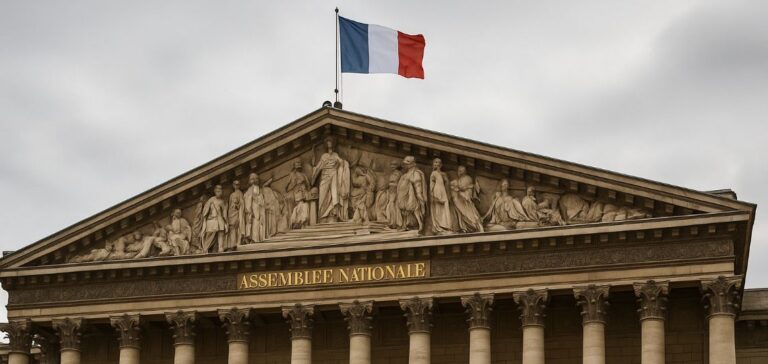Prime Minister François Bayrou announced on Monday his intention to publish the decree setting France’s energy roadmap by the end of the summer, after the examination of a draft law in Parliament. This decision comes in a context of strong political tensions surrounding the project, as the government seeks to appease opposition parties.
A compromise in response to censure threats
The Multiannual Energy Programming (Programmation pluriannuelle de l’énergie, PPE), in preparation for several years, is intended to define the country’s energy targets for 2025-2035, aiming for carbon neutrality by 2050. Initially scheduled to be enacted by decree following a simple debate without a vote, its publication is now subject to the review of a bill sponsored by Les Républicains (LR) senator Daniel Gremillet, scheduled on the parliamentary agenda starting June 16 according to the government.
In response to criticism from the Rassemblement National (RN) and some right and centre parliamentarians, the executive conceded this adjustment. Jean-Philippe Tanguy, an RN deputy, hailed it as a “great political victory”, claiming that without Marine Le Pen’s intervention, the decree would have been adopted “behind Parliament’s back”.
Revival of nuclear energy and “reasoned” support for renewables
The new PPE project includes a relaunch of the nuclear sector with the construction of six new EPR2 reactors. Simultaneously, it confirms the development of offshore wind energy and aims to reduce the share of fossil fuels in energy consumption from 60% in 2023 to 42% by 2030 and then to 30% by 2035. François Bayrou defended an “electric mix” combining “a pro-nuclear base orientation” with “reasoned support for renewable energies”.
To support this initiative, a working group led by Renaissance deputy Antoine Armand and Daniel Gremillet will conduct hearings and additional studies, with conclusions expected by the end of May.
Persistent criticism from both left and right
Part of the left, represented by Aurélie Trouvé from La France insoumise (LFI), denounced a “frantic program” of nuclear construction, pointing out the lack of a solid and sovereign industrial renewable energy sector. Ecologist Dominique Voynet criticised the nuclear choice, arguing that it would worsen the country’s energy transition delay.
On the right, Jérôme Nury (LR) denounced the expansion of renewable energies, calling them a “financial sinkhole” and blaming them for landscape degradation. In light of these opposing criticisms, Renaissance deputy Olga Givernet joked that “perhaps the PPE is balanced”. A new debate on energy sovereignty is scheduled in the Senate on May 6.






















